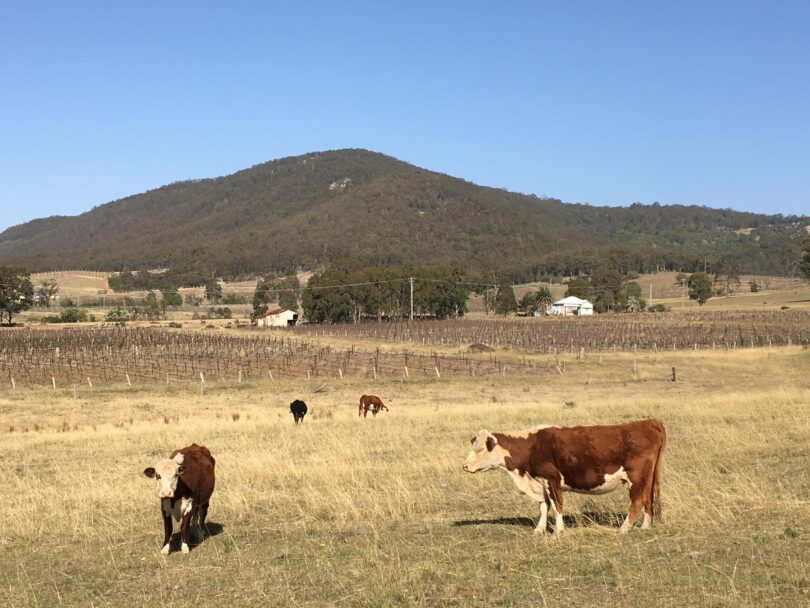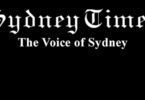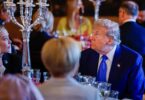US Tariffs Trigger Economic Uncertainty for Australian Exporters
News Summary using the resources of Gemini AI and fact checking by A.Ritenis
Canberra, ACT – April 3, 2025 – The Australian export market is bracing for significant disruption following the United States’ imposition of sweeping new tariffs. The move, characterized by a baseline 10% tariff across a broad spectrum of Australian goods, has ignited concerns about economic stability and long-term trade relations.
The US administration’s decision, framed as a measure to rectify perceived trade imbalances, has been met with strong opposition from Australian officials, who argue that existing trade frameworks are equitable. Key points that are important to add, are:
- Sector-Specific Impacts:
- Beef Industry:
- The Australian beef sector, a cornerstone of the nation’s agricultural exports, faces considerable vulnerability. The US has raised concerns regarding Australian beef import regulations, adding a layer of complexity to the tariff implications.1 This could lead to a significant decrease in Australian beef exports to the US.
- Minerals and Resources:
- Australia’s mineral exports, including crucial resources like aluminum and steel, are also heavily impacted.2 The tariffs threaten to undermine the competitiveness of Australian producers in the US market, potentially leading to reduced export volumes.3
- Advanced Manufacturing:
- Australian manufacturers, particularly those specializing in high-value components, are facing increased costs.4 This could disrupt established supply chains and hinder the growth of Australia’s advanced manufacturing sector.5
- Beef Industry:
- Australian Government’s Stance:
- Prime Minister Anthony Albanese has articulated a firm stance against the tariffs, emphasizing the importance of fair and reciprocal trade.6 He has stated that Australia will seek diplomatic solutions, and will not be engaging in retaliatory tarrifs.
- The Australian government is focused on supporting affected businesses by exploring alternative markets and providing assistance to navigate the new trade landscape.
- Economic Repercussions:
- The tariffs are projected to elevate costs for Australian exporters, potentially eroding their competitive edge in the US market.7
- There are growing concerns about the broader economic ramifications, including potential disruptions to global supply chains and increased market volatility.8
- Concerns regarding the Australian Dollar stability have also arisen, with analyst observing a change in its normal correlation with global markets.9
- Industry Response:
- Industry bodies, including the Australian Industry Group and agricultural organizations, are expressing deep apprehension about the potential consequences for businesses and employment.10
- Businesses are actively reassessing their export strategies and exploring diversification options to mitigate the impact of the tariffs.11
- Geopolitical context:
- The current geopolitical climate is playing a large role in the change in trade relations.
- There is also commentary that the current US governments actions are a return to “America first” policies.
The situation remains fluid, and the Australian government is committed to engaging with US counterparts to seek a resolution. The long-term implications of these tariffs on the Australia-US trade relationship are yet to unfold, but the immediate impact has created a climate of uncertainty for Australian exporters.
Trump puts tariffs of at least 10pc on imports from Australia including Beef
Donald Trump’s newest round of tariffs mean virtually all imports to the US — including from Australia — will be hit with an import tax of at least 10 per cent.
Australia has avoided a higher “reciprocal” tariff rate, which is being placed on imports from specific countries deemed to have treated America poorly.
The US will place tariffs of at least 10 per cent on foreign imports from Saturday, including those from Australia, after President Donald Trump finally unveiled his long-awaited “liberation day” trade policy.
But dozens of countries will be subject to higher “reciprocal” tariffs, which differ from place to place based on how the Trump administration perceives America has been treated by each individual trading partner.
Australia has been hit with a 10% tariff on all imports to the US as part of a global tariff regime imposed by the US president, Donald Trump.
In his “liberation day” speech, the president held up a board listing countries and their rates of tariffs. It claimed Australia imposed a 10% tariff on US goods, “including currency manipulation and other trade barriers”.
Trump did, however, in his speech single out Australia’s ban on the import of US beef – imposed in 2003 after the US had cases of bovine spongiform encephalopathy, or mad cow disease.
“Australia bans – and they’re wonderful people – but they ban American beef,” Trump said.

Beef cattle grazing in the Hunter Valley-Photo Credit A.Ritenis
“Yet we imported $3bn of Australian beef from them just last year alone. They won’t take any of our beef. They don’t want it because they don’t want it to affect their farmers and, you know, I don’t blame them, but we’re doing the same thing right now, starting at midnight tonight.”

From the ABC
Beef is a significant Australian export to the US – Australian lean beef is added to fatty American meat to make hamburgers. United Nations Comtrade data shows meat products were Australia’s largest export to the US in 2024, worth more than $4.03bn.
He said America would impose a broad 10% reciprocal tariff in return.
The US and Australia have a free-trade agreement, signed in 2005. Australian goods go into the US without tariffs and American goods come into Australia without tariffs.
Australia was not singled out for particular tariff treatment: the 10% tariff is a baseline global tariff that will be imposed on all foreign imports from one minute after midnight on Saturday morning, the White House said in a statement.
The White House has calculated Australia should be subject to the minimum 10 per cent tariff.
The US has complained about Australia’s “non-tariff trade barriers”, including biosecurity restrictions on some American food. But Australia consistently runs a significant trade deficit with the US, which may be why it avoided a higher tariff rate.
The announcement finally injects some specifics into Mr Trump’s long-awaited trade policy, which for weeks has been the subject of furious speculation fuelled by vague and sometimes cryptic comments from the president about his plans.
Many countries will be hit much harder than Australia. Imports from China, for example, will be subject to tariffs of 34 per cent on top of existing tariffs. Malaysia (49pc), Cambodia (49pc), Vietnam (46pc), and Sri Lanka (44pc) are among Asian countries subject to higher-than-expected tariffs.
The European Union faces a 20 per cent tariff, and the UK will be subject to a rate of 10 per cent.







